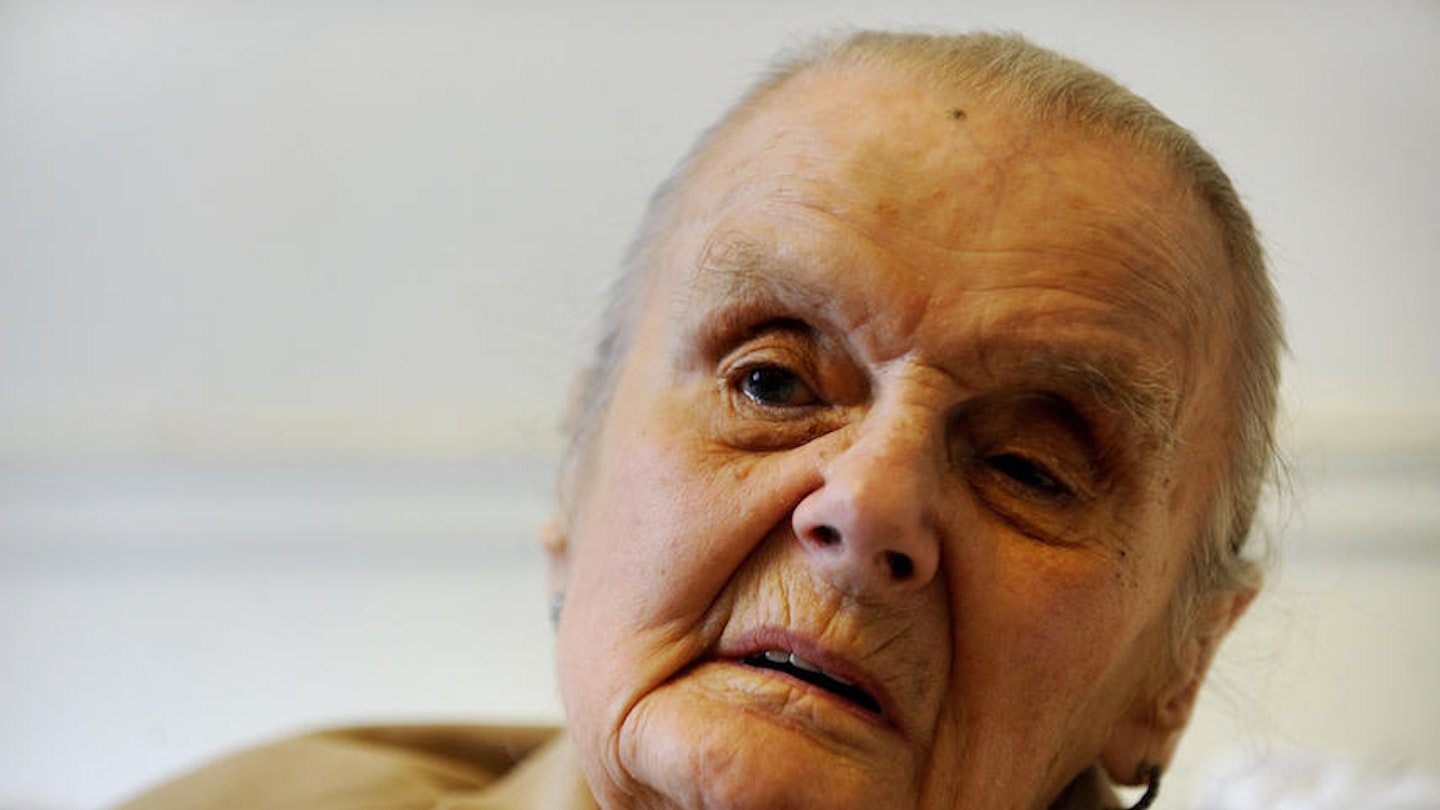Celebrated war correspondent Clare Hollingworth died at her home in Hong Kong yesterday, and tributes to the 105-year-old have poured in from all over the world.
'I consider her one the finest journalists of the 20th Century' said the BBC's John Simpson. 'I shall miss her memory more than I can say.'
'Clare Hollingworth was a remarkable journalist, an inspiration to all reporters but in particular to subsequent generations of women foreign correspondents,' said Chris Evans, editor of The Daily Telegraph, the newspaper that published Clare's biggest scoop and arguably, the scoop of the 20th century...
So what was the historic story she broke?
News of the outbreak of the Second World War.
Clare had been posted to Poland by The Daily Telegraph and had talked her way into borrowing a British consul car – because the only vehicles allowed to cross the border into Germany were diplomatic cars.
She headed into Germany on a shopping trip – to buy such items as aspirin (unavailable in Poland at the time) – but as she approached the town of Gleiwitz, she was overtaken by 65 dispatch riders. Wind blew aside the woven fabric screens that lined the roadside, and revealed behind them a row of military tanks. 'Thus I saw the battle deployment,' Clare said in her autobiography. 'I guessed that the German Command was preparing to strike to the north of Katowice and its fortified lines and this, in fact, was exactly how they launched their invasion in the south.'
Clare wrote up the story and it appeared on the front page of The Daily Telegraph on 29th August 1939. '1,000 Tanks Massed On Polish Border. Ten Divisions Reported Ready For Swift Stroke,' the headline ran.
Speaking about it to the same paper in 2009, Clare revealed: 'I wasn't frightened... I went there to look after the refugees, the blind, the deaf and the dumb. While I was there, the war suddenly came into being.'
Clare had originally gone to Poland in March 1939 to volunteer for the British Committee for Refugees in Czechoslovakia (BCRC). Her role required her to obtain visas for hundreds of Czechoslovakian refugees wanting to enter Britain, and so successful was she at it, that soon after she was promoted to the role of official BCRC representative in Poland.
However, when the organisation was absorbed into another a few months later, Clare was sent home. She believed this was due to the British intelligence services disapproving of her work enabling 'Germain-speaking aliens' to enter Britain, as The Daily Telegraph reported.
Nevertheless it was her knowledge of Poland that ensured she was sent back to the country just weeks later, this time as a reporter under the instruction of Daily Telegraph editor, Arthur Watson. Four days later, she filed her historic piece.
A career of intrepid and brilliant reporting followed.
In 1940, she travelled to Romania to report on King Carol II's forced abdication and the civil unrest brewing in Bucharest, as a part-time reporter for the Daily Express. One morning, a team of policeman turned up at her flat to arrest her for violating censorship rules, but to prevent herself from being escorted out, she took all her clothes off and said, 'You can't possibly arrest me, I'm naked.'
Her work took her to the front lines of Isreal and Pakistan, Algeria and Vietnam. Famously she travelled with her 't and t': her toothbrush and typewriter.
She was the first person to interview the new Shah of Iran – 21 year-old Mohammad Reza Pahlavi – in 1941, and the only reporter he would speak to when he abdicated in 1979.
She broke the story that Kim Philly was the 'Third Man' in the Cambridge spy ring, in 1963. Ten years later, she became The Telegraph's China correspondent, the first since the People's Republic was formed in 1949, and reported on the country's cultural revelation, remaining in Asia for the rest to her life.
Clare loved roughing it, often sleeping on the floor because 'comfort isn't very important to me', and was known to return from a mission and go straight into drinks with colleagues without washing. 'Clare, we know you're tough,' they told her once. 'But kindly take a shower.'
She repeatedly outshone her male counterparts. But when asked if she'd ever been on the receiving end of gender discrimination, answered: 'Never from first-class men. It is only second-raters who are scared of being outclassed by a woman.'
She was named 'Woman Journalist of the Year' in 1962 for her work reporting on the civil war in Algeria, and in 1982, she was awarded an OBE for services to journalism. In 1994, she won the James Cameron Award for Journalism, and a lifetime achievement honour from the British TV show What The Papers Say followed in 1999.
When asked about her extraordinary bravery, she merely replied, 'I enjoy action. I'm not brave, I just enjoy it. I don't know why. God made me like this. I'm not frightened'.
And in her 90s, when asked where she would head if offered another mission, the fearless woman replied: 'I should look through the papers and say, "Where's the most dangerous place to go" because it always makes a good story.'
Clare Hollingworth: a great lady and an outstanding journalist, who has helped pave the way for female reporters – past, present and future.
